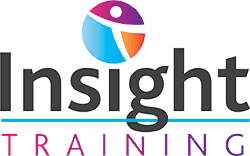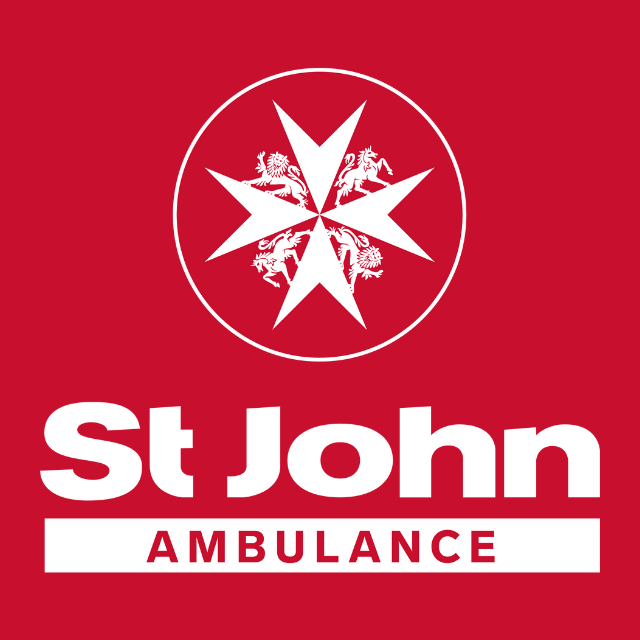So, You Want to Become an Allied Health Professional?

There are around 200,000 allied health care professionals providing quality patient care across Australia, but still plenty more jobs need filling.
Allied health professionals aren’t doctors or nurses, but our healthcare system wouldn’t be able to operate without them. They are compassionate, highly qualified, and dedicated people who work with healthcare professionals to diagnose and treat patients.
This blog explains who allied health professionals are, the courses needed to become one, and the different career options available.
What is an allied health professional?
Allied health professionals work collaboratively with other health practitioners, and play a crucial role in the healthcare industry. They’re qualified to diagnose various health conditions and illnesses and offer treatments to restore physical, social, and mental well-being.
They assess, diagnose, treat, and manage various conditions, focusing on rehabilitation, therapy, diagnostic procedures, and health promotion.
The allied health system ensures that patients receive care tailored to their individual needs. This improves their quality of life and helps achieve wider public health initiatives.
Where do allied health professionals work?
Allied health includes a broad range of work environments depending on your expertise and focus. Here are some places you can work:
- Aged care facilities
- Public hospitals
- Rehabilitation centers
- Community health centers
- Private practices
- Medical clinics
- Schools
Learn everything about being an allied health assistant including job roles, salary, skills, and courses to study.
Which allied health professionals are in demand in Australia?
There are still plenty of jobs that need filling, despite allied health professionals making up one-quarter of Australia’s healthcare industry. With this shortage, some of the fastest-growing allied health professional jobs include occupational therapy, physiotherapy, and osteopathy.
Australia’s ageing population, as well as the demand for mental health services are just a few examples of why there’s an array of employment opportunities across this health sector.
Occupational therapy
Occupational therapists help people of all ages regain or develop skills necessary for day-to-day life.
They assess patient needs, develop personalised treatment plans, and provide interventions such as therapeutic exercises, adaptive equipment, and environmental modifications. They also work with patients who have physical, cognitive, or mental health challenges to improve their independence and overall quality of life.
With an ageing population and increased awareness of the importance of occupational therapy, the demand for occupational therapists is on the rise.
average salary
for occupational therapists
Learn how to become an occupational therapy assistant including salary insights, market trends, and job pathways.
Physiotherapy
Physiotherapists specialise in assessing, diagnosing, and treating musculoskeletal conditions and injuries. They work closely with patients to help them regain or improve their physical function, mobility, and overall well-being.
Physiotherapists also develop personalised treatment plans that may include therapeutic exercises, manual therapy techniques, and the use of specialised equipment.
They educate patients on injury prevention and provide guidance for managing chronic conditions. With the increasing emphasis on preventive care and rehabilitation, the demand for skilled physiotherapists is on the rise.
average salary
for physiotherapists
Osteopathy
Osteopaths are skilled allied health professionals who take a holistic approach to healthcare. They specialise in diagnosing, treating, and preventing musculoskeletal conditions to promote overall well-being.
Using manual techniques like soft tissue manipulation and joint mobilisation, osteopaths help relieve pain, restore mobility, and enhance the body’s natural healing processes. They also provide guidance on exercise, posture, and lifestyle modifications to support long-term health.
With their holistic approach, osteopaths address the root causes of health concerns and collaborate with other healthcare professionals to provide integrated care.
average salary
for osteopaths
What other jobs are there in allied health?
- Audiologist
- Podiatrist
- Psychologist
- Nutritionist
- Speech pathologist
- Dietitian
- Naturopath
- Optometrist
- Pharmacist
What qualifications do I need to become an allied health professional?
Becoming an allied health professional typically requires a combination of formal education, clinical training, and certification or registration.
If you’re looking to enter the allied health workforce, then a Certificate III or Certificate IV will get you there. Popular courses include Certificate III in Allied Health Assistance or Certificate IV in Allied Health Assistance, which can also be taken as a dual certification.
These certificates teach you the foundational knowledge and skills you need to start your career in allied health, including:
Interpreting medical terminology
Communicating with allied health professionals
Assisting with allied health programs
Working with diverse people
Following work health and safety policies
Assisting with patient care
These certificate courses can specialise in a specific area of allied health such as physiotherapy, occupational therapy, or nutrition and dietetics.
You’re also required to complete a work placement component alongside a qualified allied health professional which allows you to consolidate your learning and practice your skills in a real-life setting.
What skills will I learn in my course?
Communication
Effective communication is vital to interact with patients, colleagues, and other healthcare professionals. Clear and concise communication helps establish rapport and ensures accurate information exchange.
Empathy
The ability to empathise with patients and demonstrate compassion is crucial in providing patient-centered care. Allied health professionals often work with individuals who may be experiencing physical or emotional challenges, and a compassionate approach can make a significant difference.
Critical thinking
Allied health professionals need strong critical thinking skills to analyse complex situations, make informed decisions, and adapt their approaches to individual patient needs. They must evaluate different options and develop effective treatment plans.
Problem solving
The ability to identify problems, think creatively, and implement solutions is essential in allied health professions. Being proactive and resourceful in finding innovative ways to support patient care is highly valued.
Collaboration
Collaboration and teamwork are integral to the allied health field. Working harmoniously with other healthcare professionals, sharing information, and contributing to a multidisciplinary approach are key to delivering comprehensive care.
Is allied health for me?
If you’re passionate about healthcare but can’t invest in years of studying to become a doctor or nurse, then allied health is the perfect option for you.
Whether you’re a newbie, or you already work in allied health, there are endless opportunities to continue upskilling and give back to your community — that’s what’s so great about allied health, there’s no dead end.
To be truly successful in allied health, you have to enjoy socialising and meeting new people, as a big part of the job is making people feel comfortable. You’ll rely on your empathy and compassion to create deep connections with your patients and understand their needs and pain points.
You’ll also use your social skills to communicate with patients and fellow healthcare professionals, as well as your technical abilities to properly diagnose health conditions and provide the right treatment.
If you want to dedicate your career to improving the health and wellbeing of others, then browse allied health courses today, and take that next step to become a qualified allied health professional.
Check out our blog Considering a Career in Allied Health But Don’t Know Where to Start?
Browse Results
Diploma of Counselling
There is a growing need for people who can offer support services to adults and teenagers who may need support and guidance. If you have the desire to help people lead a happier life to reach their full potential, a career as a professional Counsellor...

Diploma of Nursing (SA Only)
Build a meaningful career that makes a difference with the HLT54121 Diploma of Nursing. This nationally recognised qualification provides the essential skills, knowledge, and practical training needed to become a qualified Enrolled Nurse in Australia....


Graduate Diploma in Management
The Graduate Diploma in Management is an online postgraduate qualification that is ideal for busy senior managers, with a potential entry pathway through any of our Graduate Certificates and study that is highly supported, fits into your schedule, and...

Graduate Certificate in Management
The Graduate Certificate in Management is an online postgraduate qualification that is designed for newer and ambitious professionals, with entry possible through management experience alone and a study structure that easily accommodates full-time work...

Certificate IV in Fitness
Take the next step in your career and gain the qualification you need to become a Personal Trainer. If you currently work in the fitness industry as a Gym or Group Fitness Instructor, elevate yourself to the next level by studying the SIS40221 Certific...

Certificate III in Fitness
If you’re looking to begin your career in the fitness industry, studying the SIS30321 Certificate III in Fitness is the perfect qualification to get you started. Gain all the knowledge and skills you need to enter the industry as a Gym Instructor or Gr...

Personal Trainer Course
Join the fitness industry as a Personal Trainer and turn your love for fitness into a rewarding career by graduating in both the SIS30321 Certificate III in Fitness & SIS40221 Certificate IV in Fitness. Enjoy the flexibility of being your own boss...

Bachelor of Health Science (Clinical Nutrition)
Clinical nutritionists integrate traditional food wisdom and current scientific evidence to motivate individuals and communities to eat well and live healthier lives. The Bachelor of Health Science (Clinical Nutrition) is supported by a strong underpin...

Bachelor of Health Science (Naturopathy)
Naturopathy is a whole medical system combining theory (philosophy and principles) and practise that uses an array of natural therapies to support healing and maintain health. Naturopaths aim to treat the underlying causes of illness and disease. The c...

Certificate III in Community Services (Perth Only)
Are you a natural when it comes to providing guidance to people? Would you like to kick start a career in Community Services? The Certificate III in Community Services (CHC32015) is the perfect entry-level qualification for prospective Community Servic...

Certificate III in Individual Support (Ageing OR Disability) (Perth Only)
If you have a passion for helping those most in need, this qualification is one way you can utilise your knowledge for the benefit of others. Package the Certificate III in Individual Support (Ageing or Disability) (CHC33021) to save time and gain know...

Certificate lll in Early Childhood Education & Care (Perth Only)
If you love working with children and want to learn more about providing quality education and care in a range of environments, this course is for you. The Certificate lll in Early Childhood Education and Care (CHC30121) can provide you with an entry-l...

Certificate III in Individual Support (Disability) (SA Only)
The Certificate III in Individual Support (Disability) is designed to equip you with the practical skills and knowledge to support people living with disability in a variety of care settings. With a focus on person-centred support, you’ll learn how to...


Certificate III in Non-Emergency Patient Transport (VIC Only)
Our Promise We are confident in the delivery of our training. On successful completion of the course, graduates will be guaranteed a telephone interview for vacant Patient Transport Officer positions in the Non-Emergency Patient Transport division. So...

Certificate III in School-Based Education Support (Perth Only)
Are you interested in becoming a teacher’s aide? Work with teachers to create a comfortable and supportive environment for children’s learning. You will ensure lessons run smoothly while also developing the student’s literacy, numeracy and resear...

Certificate III in Allied Health Assistance (Perth Only)
A Certificate III in Allied Health is your entrance into the world of health services! This course will teach you to support workers in a range of fields such as audiology to social work. You will use your qualification to gain an entry-level job in ei...

Bachelor of Health Science (Acupuncture Therapies)
Acupuncture is a branch of Chinese Medicine that stimulates specific points on the body to regulate the flow of Qi (vital energy) to restore health and balance the functions of the body, mind and spirit. Acupuncture therapies combines Chinese medicine...

Bachelor of Health Science (Chinese Medicine)
Chinese medicine is a whole medical system that seeks to balance the functions of the body, mind and spirit and restore health. It combines theory (philosophies and principles) and practices including acupuncture, moxibustion, medical Qi Gong, Chinese...

Diploma of Beauty Therapy (QLD Only)
Gain real-world experience in Demi’s student clinics and launch your career in the beauty industry. VET Student Loans Available Nationally Recognised Accreditation Flexible part time or full time study options University doesn’t always mean...

Diploma of Engineering (Technical)
This qualification provides you with the practical skills and knowledge to draw and design the necessary specifications an engineering workshop needs to manufacture goods. This course develops on your existing knowledge in how to produce different engi...

